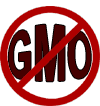Doubts Over Cassava Project
By Dagi Kimani
East African Magazine
September 11, 2006
Researchers have admitted that varieties of the genetically-modified cassava that they had declared to be disease-resistant were actually vulnerable to the devastating cassava mosaic disease.
CONTROVERSY HAS deepened over a multi-million dollar USAid-supported cassava research programme, which proponents had said would help boost East Africa's food security, but which critics have dismissed as an attempt by the United States to develop alternative sources of "renewable" energy.
In the latest twist, a leading American research facility, the Donald Danforth Plant Science Centre, has admitted that varieties of genetically-modified cassava that it had declared to be disease-resistant are actually vulnerable to the devastating cassava mosaic disease (CMD), the leading cause of farm losses for the crop.
CMD routinely leads to losses of over 30 per cent of the cassava harvest in some farms. A statement by the centre dated May 26, 2006, says that though resistance to CMD had been established through genetic engineering seven years ago, "the resistance was subsequently lost, and [changes to] the plant's DNA had taken place."
Revelations of the resistance failure came even as plans were at an advanced stage to have the Kenya Agricultural Research Institute (Kari) test the transgenic cassava plants under natural field conditions as a preamble to its release to farmers.
The GM cassava varieties were developed through the Disease-Resistant Cassava for Kenya Project, which is funded by USAid, whose stated goal was "to develop and deliver transgenic, disease-resistant cassava planting materials to farmers in Kenya to increase their harvests and improve their food security."
Critics of the cassava-research programme, however, say that the objectives of the project go beyond food security, and touch on the search by the United States of a cheap source of starch other than maize to manufacture ethanol to help wean it from oil. The development of a GM cassava would also help break down resistance to the introduction of genetically-modified crops across the region.
According to the critics, a senior scientist at Danforth Centre, Dr Claude Fauquet, admitted as such when he said in a briefing paper that the "acquisition of the cassava genome sequence will provide a platform to explore the vast biodiversity within cassava wild species. Ultimately, these activities will position cassava as a valuable source of renewable bio-energy."
Together with several other US research facilities, the Danforth Centre, has in addition to being involved in the effort to develop disease-resistant varieties of cassava been contracted by the US Department of Energy Joint Genome Institute (DOE-JGI) to sequence the plant's entire genome.
The DOE-JGI itself acknowledges that cassava is an excellent energy source which "is grown worldwide as a source of food for approximately one billion people, raising the possibility that it could be used globally to alleviate dependence on fossil fuels."
According to the South African-based African Centre for Biosafety, these admissions mark a "dramatic about-turn from previous commitments to address hunger and the nutritional needs of people in developing countries."
Proponents of the research programme, however, contend that its critics are opposed to it purely because of the fact that it involves genetic-modification, a controversial issue in most African countries outside South Africa.
Before the latest announcements of setbacks, the Danforth Centre had released an elaborate programme in which the disease resistant varieties would be rolled out across East Africa, starting with the distribution of the region's most popular cassava variety - Ebwanatareka - for adoption by 32,000 Kenyan farming families.
"Successful achievement of the project goal will help 200,000 Kenyan cassava farmers and their family members increase their food security by controlling CMD and increasing their cassava harvests by 50 per cent on a sustainable basis," the Danforth Centre says in its website. "A 50 per cent increase in yield for these families will generate an additional 63,000 tonnes of food each year."
The Ebwanatareka variety would then be distributed to Uganda, where it was projected to substantially raise the country's cassava out-put.
"By deploying the same transgenic variety in Uganda, annual production of cassava in that country will increase by over 600,000 tonnes, and the total number of beneficiaries in both countries will increase to over one million persons," says the Danforth Centre's statement.


